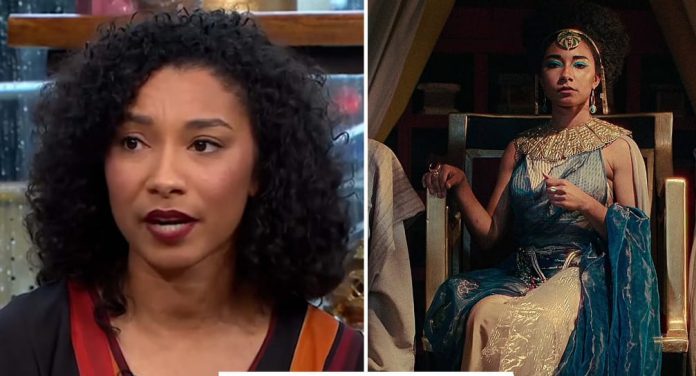Netflix’s upcoming docudrama ‘Queen Cleopatra’ has faced backlash from Egyptian authorities who accuse the streaming giant of misrepresenting history by casting a Black woman, Adele James, in the lead role of Cleopatra.
The controversy emerged after the release of the trailer, which claimed that Cleopatra was black with “curly hair.” Egyptian officials in Cairo dismissed this portrayal as a “blatant historical fallacy.”
Egypt’s Ministry of Tourism and Antiquities argued that the documentary nature of the series necessitates accurate investigation and reliance on historical and scientific facts.
Dr. Mustafa Waziri, Secretary-General of the Supreme Council of Archaeology, criticized the appearance of Cleopatra in the series as a “falsification of Egyptian history and a blatant historical misconception.” He emphasized the importance of consulting archaeologists and anthropologists during the production.
The Ministry of Tourism and Antiquities supported their argument with images of artifacts and coins depicting Cleopatra, highlighting her “Hellenic (Greek) features” such as a light complexion, a drawn nose, and fluffy lips.
Dr. Waziri stated that the rejection of the film before its screening stems from the desire to defend the history of Queen Cleopatra as an authentic part of ancient Egyptian history.
Dr. Nasser Mekkawy, Head of the Egyptian Department of Archeology at Cairo University, further explained that Cleopatra’s appearance would have been light-skinned due to her Macedonian origins.
In response to the criticism, Adele James addressed the controversy during an appearance on Channel 4’s Steph’s Packed Lunch. She acknowledged the expected backlash but expressed distress over the racist nature and scale of the abuse she received.
Adele James emphasized that the series delves into the fullness of Cleopatra’s character, going beyond the question of her race. She highlighted the importance of portraying Cleopatra as a complex human being, not reducing her or anyone to their race. Adele also praised Hollywood actress Jada Pinkett Smith, the executive producer and narrator of the series, for her support and involvement in the casting process.
The controversy surrounding the casting decision has ignited a debate about the representation of Cleopatra and the promotion of Afrocentric thinking. Zahi Hawass, Cairo’s former antiquities minister, condemned the documentary as “completely fake,” asserting that Cleopatra was Greek and light-skinned.
He called on the Egyptian people to stand against Netflix. In response to the criticism, lawyer Mahmoud al-Semary filed a complaint with the public prosecutor, demanding legal measures to block access to the series, alleging content violations of Egypt’s media laws and an attempt to erase the Egyptian identity.










